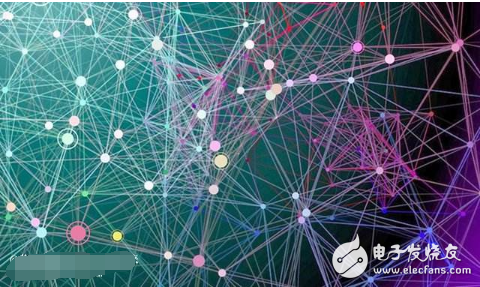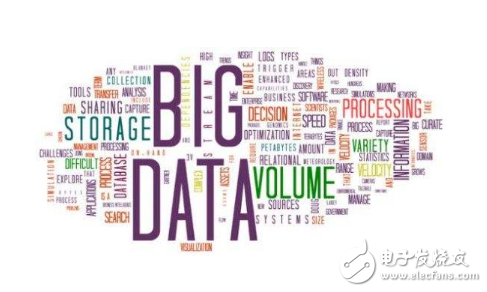Talking about small data in the era of big data
Now it seems that everyone loves to say "big data", just like I usually go to a meeting, not using big data to analyze this, or building it with big data. However, I recently read several small data mentioned in the American Computer Society Newsletter (CACM). I think it is necessary for everyone to understand this interesting concept.
Big data is actually a very large database, so large that it can't be processed with existing technology, so people in the computer industry talk about big data, referring to "big data technology." People in the life sciences talk about big data refers to “big data analysis†in this field. People who engage in big data equipment and management don’t necessarily analyze it because it requires professionalism.
There is also a force that will change our thinking and practice about health, which is small data driven by personal digital tracking. Based on a cloud application, analyze your digital tracking of your work, shopping, sleeping, eating, exercising, and communicating continuously, securely, and privately over time, and get a picture of your health. Personal equipment and network services are needed here, especially self-tracking. For example, I had a stomachache yesterday, so I thought: What is the difference between the day before yesterday and the day before yesterday? what! Understand, I drink one or two drinks a day. The wine I drink the day before is different. I changed a brand. It may be that this new brand of wine caused my stomach pain. This small data provides the basis for analyzing my health.

Big data has transformed the transformation of an era, bringing people a big revolution in life, work and thinking. The transformation of the era requires understanding data and information from the perspective of big data.
What is small data? Small data is individualized data and is the digital information of each of us. For example, I drink one or two drinks every day. Suddenly, after a day of drinking, my stomach hurts. I thought about it. What is the difference between this day and before? It turned out that the wine that I drank this day was a new brand. It might be that drinking this new brand of wine made my stomach hurt. This is the "small data" in my life. It is not as complicated as big data, but it is very important to me.
The first to realize the importance of "small data" is Professor Deborhal Astin of Cornell University. Justin’s father died last year, and a few months before his father’s death, the computer science professor noticed a little different in the digital society’s pulse – he stopped sending emails and not going to the supermarket to buy The distance between the dishes and the walks is getting shorter and shorter.
However, this gradual weak state, really go to the hospital to check the ECG, but it may not be able to see it. When I went to the emergency room for examination, whether it was a pulse or a medical record, the 90-year-old man did not show a particularly obvious abnormality. In fact, tracking his individualized data at all times, his life is obviously different from before. The warnings and insights of life messages brought by this daily small data inspired the computer science professor - small data can be seen as a new medical evidence, it is "your row of their data" (in their data The data that belongs to you).
People love to say that big data will change contemporary medicine, such as genomics, proteomics, metabolomics, etc., but small data driven by personal digital tracking will also bring changes to personal medicine, especially when Once wearables are more mature, mobile technology will be able to collect and analyze your data continuously, securely and privately, which may include your work, shopping, sleeping, eating, exercising and communication, and these digital tracking will get only one Your healthy self-portrait.
What are the benefits of having this digital self-portrait for yourself? Suppose you are a patient, so accurate and individualized small data may help you answer: What dose should I use for each dose? Of course, there will be a medication guide on the drug label, but that value is based on statistical analysis of a large number of patients, but it is not suitable for you at this moment? So you need to know about your own "small data." For chronic diseases, depression, memory loss, and Crohn's disease, data on changes in daily activities are needed. Big data is generally obtained from a large N population, while small data is n=me. We need data liberation to free the data of mobile and web services to you and myself.

In this way, small data may provide us with more research possibilities: Can we obtain their health information by analyzing the integration data of elderly parents? Can you compare different medical treatment options through these integrated data? For example, data tracking can tell you how far you can go for a walk. How early you are to leave home can show how effective arthritis medication is.
Even more exciting is that small data may also be a good helper for humans to overcome cancer. Many people now recognize the need to personalize cancer treatment with patient data. We want to characterize all patients. The DNA of tumor cells causes very different changes in different cancer patients. For example, roughly the same genetic variation or deletion accounts for only 10% of patients. Even in the same tumor, the variation in cells is different. The interaction between genes may cause secondary mutations, which have a great impact on the treatment of patients. Therefore, it is impossible to use the same treatment for many patients. Individualized or hierarchical drug treatment is to prescribe the prescription according to the conditions of a particular patient - not "the right medicine", but "putting medicine on people." These personalized treatments need to record and analyze the patterns of individual behavior over time, which is small data.
Of course, this is not to say that big data is not important. It is medically found that the general rule of treatment requires big data. European and American countries are planning to compile a database of patient information, not only for cancer treatment, but also for developing new treatments. Integrating a large number of online databases can promote personalized medication and alleviate their suffering. Get regular from big data and use small data to match individuals.
Big data is popular, everyone will say "big data", but this is not a learning attitude. Don't touch a lot of data, just put a hat on it "big data." Just like 20 years ago, system engineering was also very fashionable. Even if it is a report on a relatively large project, it is said that it is system engineering. What about system engineering? "That is very difficult," there is no more. We should open our minds, study practical problems, and avoid talking.
Barrier Terminal Block
Terminal blocks are used to facilitate the connection of wires. In fact, they are a piece of metal sheet sealed in insulating plastic. There are holes at both ends to insert wires and screws to fasten or loosen them. For example, two wires sometimes need to be connected and sometimes need to be disconnected. At this time, they can be connected with terminals and can be disconnected at any time without having to connect them It's very convenient and fast to weld or wind together. And it is suitable for a large number of wire interconnection. In the power industry, there are special terminal blocks, terminal boxes, all of which are terminal blocks, single-layer, double-layer, current, voltage, common, breakable, etc. A certain crimping area is to ensure reliable contact and enough current.
Barrier Terminal Block
ShenZhen Antenk Electronics Co,Ltd , https://www.antenkconn.com